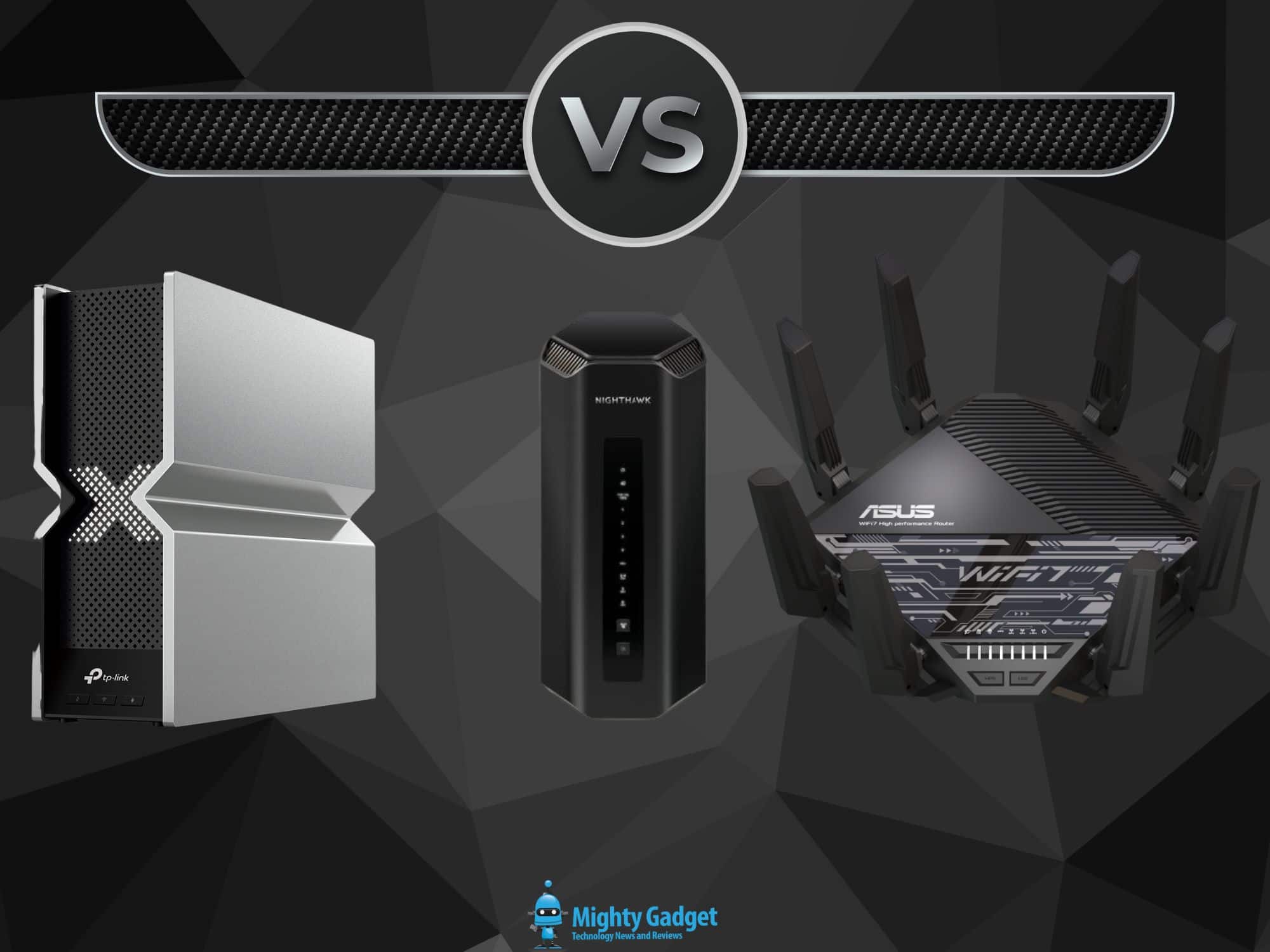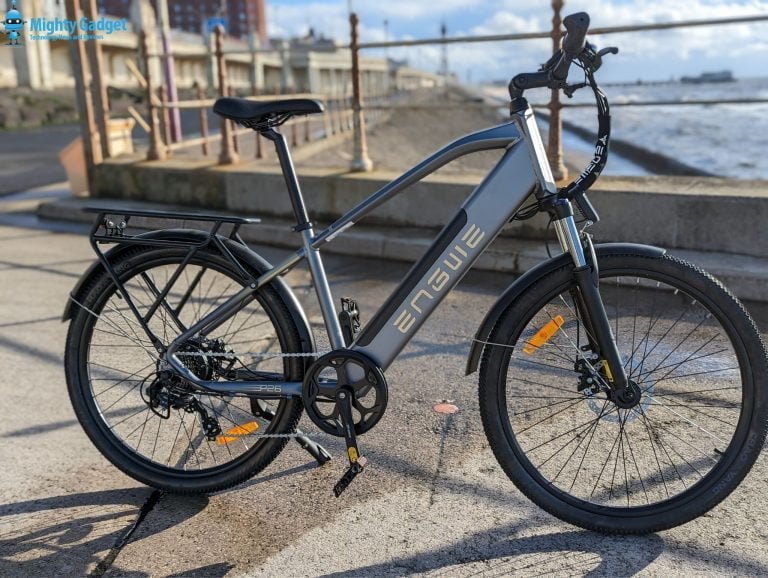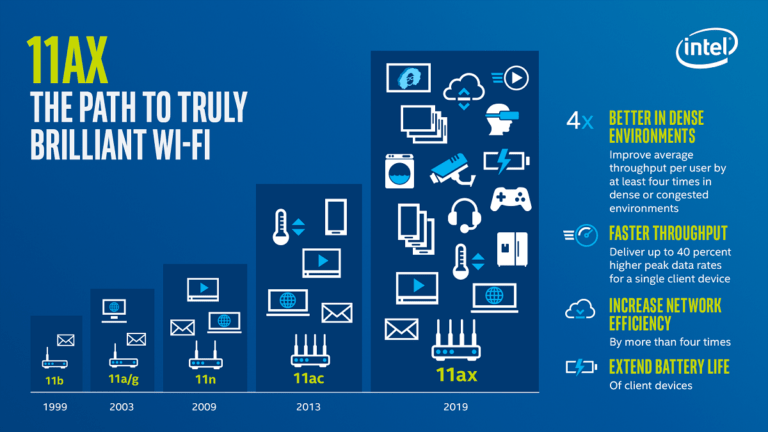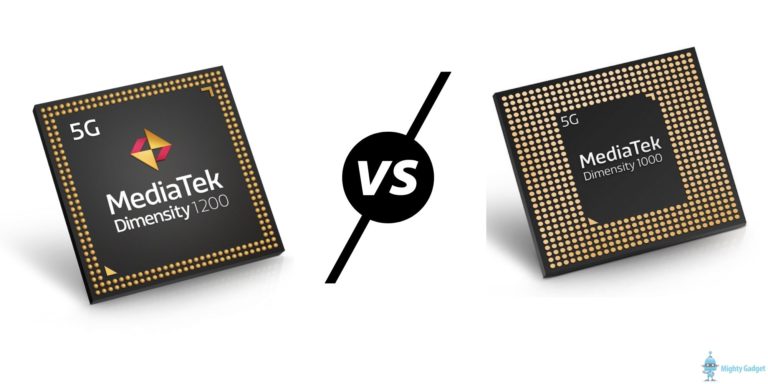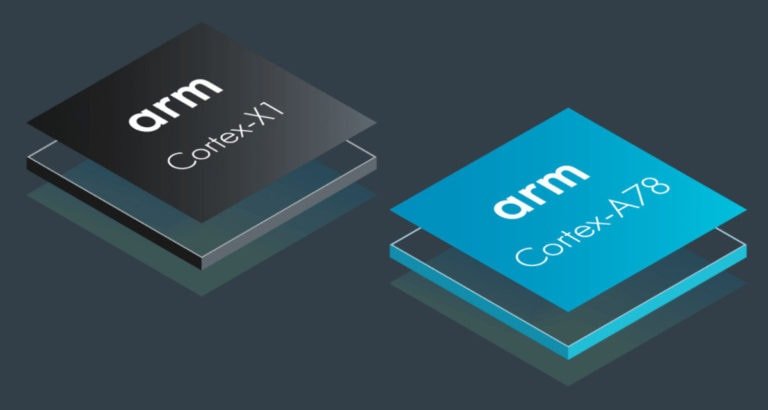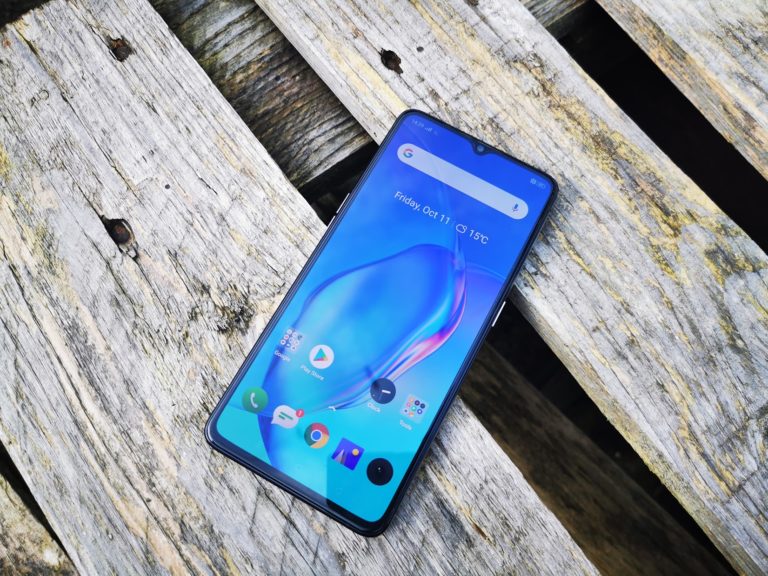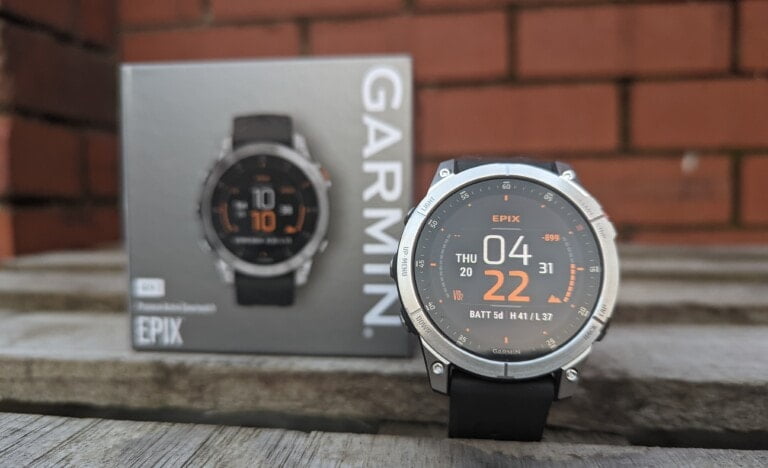Any links to online stores should be assumed to be affiliates. The company or PR agency provides all or most review samples. They have no control over my content, and I provide my honest opinion.
Last week Netgear announced their first Wi-Fi 7 router, the tri-band Nighthawk RS700.
In recent months, we have seen multiple Wi-Fi 7 router and access point announcements. ASUS ROG have two routers with the tri-band ROG RT-BE96U and the quad-band ROG Rapture GT-BE98.
TP-Link has gone all in with Wi-Fi 7, with three Deco mesh systems, four Archer routers and two access points. Three of the routers are tri-band, while the flagship BE900 is quad-band.
Netgear always seems a little slow at announcing products, but more often than not, they get the product to market before other brands. At the time of writing, Netgear US is stating a shipment date of 27th of May at a price of $699.99.
The other brands have no shipment date at all, just that it will be sometime in 2023.
It is worth noting that there is no rush to get one of these systems as there are currently no Wi-Fi 7 clients available, but this should start to change later in the year.
So how does the new Nighthawk RS700 compare to the other tri-band routers from ASUS and TP-Link?
Tri-Band vs Quad-Band Routers – Tri-Band is the new Dual-Band
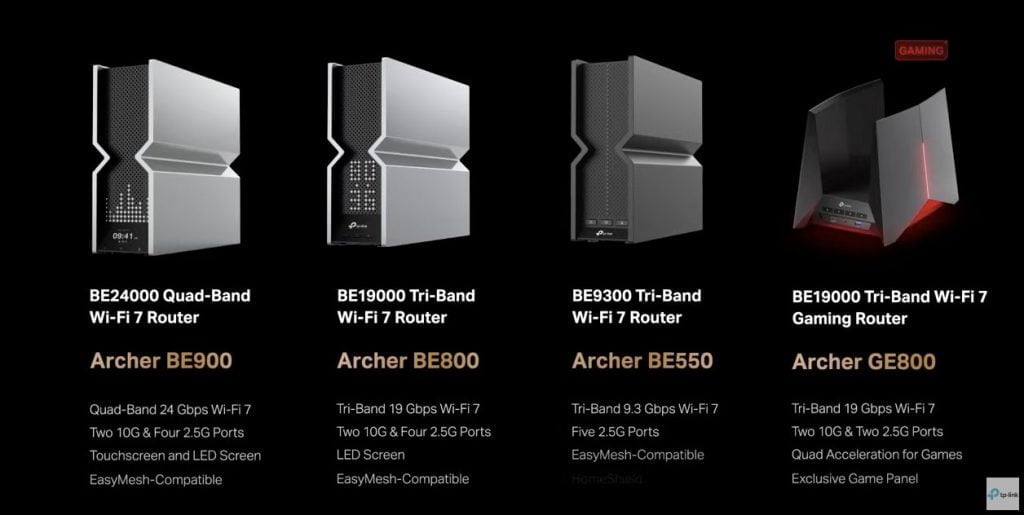
With the launch of Wi-Fi 6E, there was a new 6Ghz band added by default for any router supporting this Wi-Fi standard.
All routers that support Wi-Fi 6E and Wi-Fi 7 will need to be tri-band as standard which will allow them to support all legacy Wi-Fi devices.
When mesh Wi-Fi was introduced, we started to see routers, or mesh systems, adding an additional 5GHz band which is then used as a dedicated backhaul to and from the satellite to the main router.
With a system that does not have a dedicated backhaul, one of the bands (normally 5GHz) will be shared as the client-side band and backhaul. When this happens, you get signal loss causing around a 50% drop in throughput.
With Wi-Fi 7 and 6E routers, a tri-band router, will have the same signal loss as a dual-band Wi-Fi 5/6 router when using mesh and connecting to one of the satellites. The main router will not have its throughput affected.
All the routers in this comparison are compatible with mesh. The Nighthawk will be updated to support EasyMesh, which is the same system that is used as TP-Link. ASUS use their proprietary AIMesh.
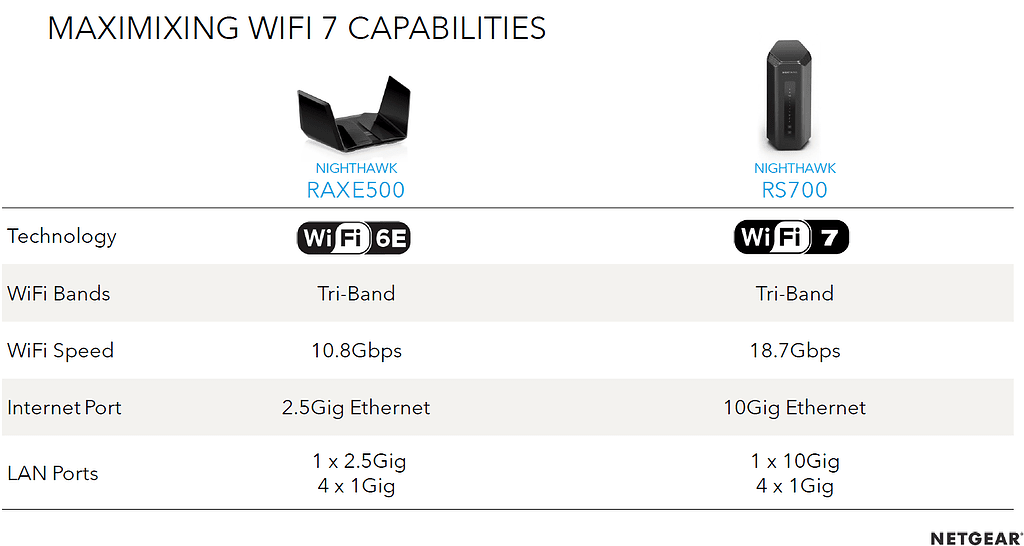
Nighthawk RS700 vs ROG RT-BE96U vs TP-Link Archer BE800 Wi-Fi 7 Specification
| Wi-Fi 7 Router | Netgear Nighthawk RS700 | ROG RT-BE96U | TP-Link Archer BE800 |
|---|---|---|---|
| Antennas | 8 | 8 | 8 |
| Wi-Fi Standard | Wi-Fi 7 | Wi-Fi 7 | Wi-Fi 7 |
| QAM Support | 4096-QAM | 4096-QAM | 4096-QAM |
| Wi-Fi Bands | 2.4 GHz: 1.4Gbps 4×4 40MHz 5 GHz: 5.8Gbps / 4×4 / 160MHz 6 GHz: 11.5Gbps / 4×4 / 320MHz | 2.4 GHz: up to 1376 Mbps 5 GHz: up to 5762 Mbps (160 MHz) 6 GHz: up to 11,525 Mbps (320 MHz) | 2.4 GHz: 1376 Mbps (4×4) 5 GHz-1: 5760 Mbps (4×4 160 MHz) 6 GHz: 11520 Mbps (4×4 4096 QAM + 320 MHz) |
| CPU | Quad-core 2.6GHz CPU, 512MB NAND Flash, 1GB RAM | 2.6GHz quad-core 256 MB Flash and 2 GB RAM | Not stated |
| Memory | 256 MB Flash, 2 GB DDR4 RAM | Not stated | |
| WAN/LAN Ports | 1x 10Gbps WAN 1x 10Gbps LAN 4x 1Gbps LAN | 1 x 10 Gbps WAN/LAN 2 x 10 Gbps LAN 3 x RJ45 10/100/1000 Mbps LAN | 1 x 10 Gbps SFP+/RJ45 Combo WAN 1 x 10 Gbps LAN 2 x 2.5 Gbps LAN 4 x 1 Gbps LAN |
| USB Ports | 1x USB 3.0 | USB 3.2 Gen1 x1 USB 2.0 x1 | 1 x USB 3.0 1 x USB 2.0 |
| Mesh | Wi-Fi EasyMesh to be added via firmware | AiMesh | EasyMesh |
| Price | $699.99 from Saturday, May 27 | ? | ? |
Price and Availability
The Netgear Nighthawk RS700 is available to pre-order now with an RRP of $699.99, and it will ship in late May. No word on UK availability just yet.
For ASUS, there is no word on the price or availability of the RT-BE96U. The ROG Rapture GT-BE98 was stated as becoming available in Q1 2023, but that seems unlikely. The ROG Rapture GT-BE98 is also reported as being $800, so I’d expect the tri-band RT-BE96U to be quite a bit cheaper.
Similarly, TP-Link may have announced the most products, but there is no word on when they will be available to buy. The Archer BE900 was supposed to be available for pre-order in December with a Q1 launch, but I can’t find anywhere that allows you to pre-order. The Archer BE900 has an RRP of $699.99, so the tri-band TP-Link Archer BE800 should undercut Netgear significantly.
Nighthawk RS700 vs ROG RT-BE96U vs TP-Link Archer BE800 Opinion
It is too early to form a conclusive opinion of these routers; they will all inevitably be excellent.
All three routers will likely offer comparable performance. The Wi-Fi performance will likely be identical.
The main considerations when buying will be:
- Your preferred ecosystem – I am used to both Netgear and TP-Link
- LAN/WAN Configuration – TP-Link has the advantage here
- USB Ports – I can’t say I use USB on a router myself, but the ASUS, with its 10Gb/s USB 3.2 Gen1 x1 port, has an advantage. Though I doubt you’d see any real-world difference with the 5Gb/s USB 3.0 ports.
- Mesh – I doubt this will make much difference, but the EasyMesh on the Netgear and TP-Link should give you more flexibility in what satellite you pair with the router.
- Price and Availability – It is likely that Netgear will be the most expensive but also the first to be available. I would guess that TP-Link will be the cheapest.
Based on what we know so far, the TP-Link looks the most appealing of the three, but who knows when it will be available?
Originally posted on mightygadget.co.uk – Follow on Twitter – Instagram – Facebook – Mighty Gadget Latest Reviews
I am James, a UK-based tech enthusiast and the Editor and Owner of Mighty Gadget, which I’ve proudly run since 2007. Passionate about all things technology, my expertise spans from computers and networking to mobile, wearables, and smart home devices.
As a fitness fanatic who loves running and cycling, I also have a keen interest in fitness-related technology, and I take every opportunity to cover this niche on my blog. My diverse interests allow me to bring a unique perspective to tech blogging, merging lifestyle, fitness, and the latest tech trends.
In my academic pursuits, I earned a BSc in Information Systems Design from UCLAN, before advancing my learning with a Master’s Degree in Computing. This advanced study also included Cisco CCNA accreditation, further demonstrating my commitment to understanding and staying ahead of the technology curve.
I’m proud to share that Vuelio has consistently ranked Mighty Gadget as one of the top technology blogs in the UK. With my dedication to technology and drive to share my insights, I aim to continue providing my readers with engaging and informative content.

